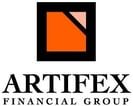The Many Ways of Getting Screwed by Non-Fiduciary "Financial Planners"
I don't really read too many of the industry trade journals that come across my desk on a weekly basis, but the latest issue of "Financial Planning" magazine caught my attention. The lead story on the cover is entitled "My advice, if I was going to feed my family, had to lead to some sort of sale. Northwestern Mutual's practices raise difficult questions about fiduciary advice."
Since I spent one year right after graduating from Ohio State in 1983 working for Northwestern Mutual, I felt compelled to read this one. What is evident from the story are the various mechanisms in place not only at Northwestern Mutual, but virtually ALL national brokerage firms and insurance companies that place the client's interests far down the list from fiduciary standing. We've seen any number of instances when clients come to us from Morgan Stanley, Merrill Lynch, Ameriprise Financial, Edward Jones and even other independent broker-dealer firms that indicate that the previous advisor had placed their own interests over the client's.
Breaches of fiduciary responsibility come in myriad forms, some of which are well-hidden from the clients, and typically involve hidden fees, high cost annuities and insurance products, and sub-standard mutual funds peddled by the "mother ship" in order to serve the firm's mission first and foremost.
Some of the practices at Northwestern Mutual are worth mentioning as they are commonplace among the traditional banks, brokerage houses and insurance companies. The author of the article interviewed advisors who have left Northwestern for various reasons, and referenced the following practices as being instrumental in their departures:
- Advisor compensation being tied closely to the sale or insurance and annuity products, regardless of the company's advertised focus on "financial planning."
- Proprietary service models that "serve as in -house distribution channels for fund or insurance products."
- "Exorbitant fees, such as a $500 charge to open a client account."
- "The compensation grid nets higher payouts to advisors based on the combined premiums from sales of the company's so-called core products - (insurance and annuities)."
- One advisor stated: " a lot of the advice is going to lead to a product...clients just don't quite understand how the way they're paying their advisor influences those things. They're hoping to get unbiased advice."
- $15 fees for stock and ETF trades, when most custodians these days charge no fees for these transactions.
- "Northwestern and other brokerage firms that provide advisory services can receive commissions and 12b-1 fees and asset based fees on the same security. They also receive kickback payments from fund companies, called revenue sharing, in exchange for a place on the menu of investment recommendations for affiliated advisors." (This is particularly egregious at Edward Jones, and is disclosed in their Revenue Sharing Disclosure, which few clients actually read or understand).
The main problem with all of these issues is that it obscures a blatant truth when using one of these firms for your financial planning - that you will not receive unbiased, objective, cost-effective financial planning and investment advice. Any firm that is not a pure client fiduciary will have implicit or explicit provisions in your agreement with them (and the advisor's employment agreement) that will run afoul of providing you with the best financial planning experience you could obtain by utilizing the services of a firm like Artifex Financial Group.
This article is an excellent summary of the practices of many so-called financial planning companies, and are the primary reasons that Darren and I left that world 14 years ago to start something better. We knew then that we could do it better, and we continue to improve our services to this day - to keep providing a service that is a leap ahead of the competition.
Whether you do business with us or not, you owe it to yourself and your loved ones to select an independent, fee-only fiduciary financial planning firm to represent your interests. Your financial future may depend on it.
--Doug Kinsey, CFP®, CIMA®
Founding Partner, Artifex Financial Group
References:
"A conflicted question: What is fiduciary advice?" Financial Planning, September 2020








